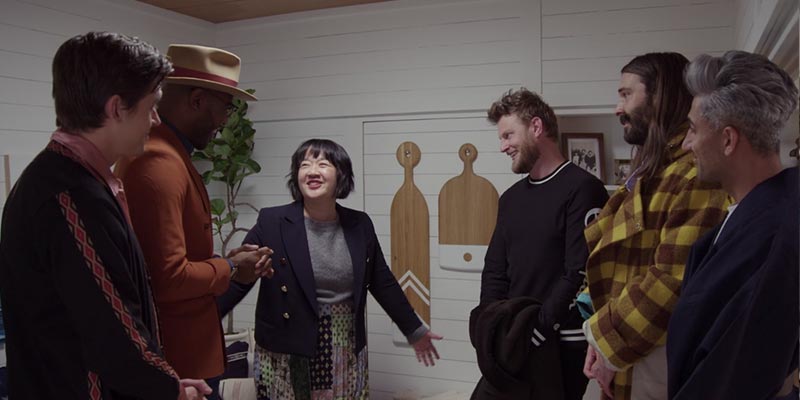Last year Netflix rebooted Queer Eye, the hugly successful show from the early 2000´s. Bringing in fresh faces to host this feel good show focused on highlighting inner beauty and self love. The show’s premise remained the same, following the ¨Fab Five ̈ as they introduce a new participant that needs help believing in themselves. Of the Fab Five, each one represents an important pillar of creating balance in life. Part of the Fab Five are; chef Antoni Porowski, interior designer Bobby Berk, grooming consultant Jonathan Van Ness, fashion designer Tan France and culture expert Karamo Brown. Together they travel around the world to help people from all walks of life to believe and love themselves again.
Highlighting the difficulties of palliative care
On their first international season Queer Eye goes to Japan and episode one is about Hospice care giver Yoko, aged 57. After her twin sister passed away too young, and in what Yoko saw as undignified way, she dedicated her life to helping other pass with grace. Giving everything she has to the dedication of her patients including her mind, body, soul and home. But in the process she completely lost herself. Which is a real issue we don’t ́t want to continue seeing in the palliative care segment.
When the Fab Five arrived they give potentially 158 million Netflix subscribers an eye opening portrayal of how difficult caring for those in the final phases of life can be, and how easy it is for care providers to get lost in such important work. Over the course of the week, they take Yoko out of her care role and comfort zone to remind her about the important balance of caring for yourself to help others in the best way possible.
Spreading death positivity
This episode is important for the death care industry because it subconsciously opens up the conversation and topic about discussing how people want to be treated when they pass. Of course it is merely an undertone in the show, but a great way to reach the global masses, who can benefit greatly from being more open about a conversation around death.
